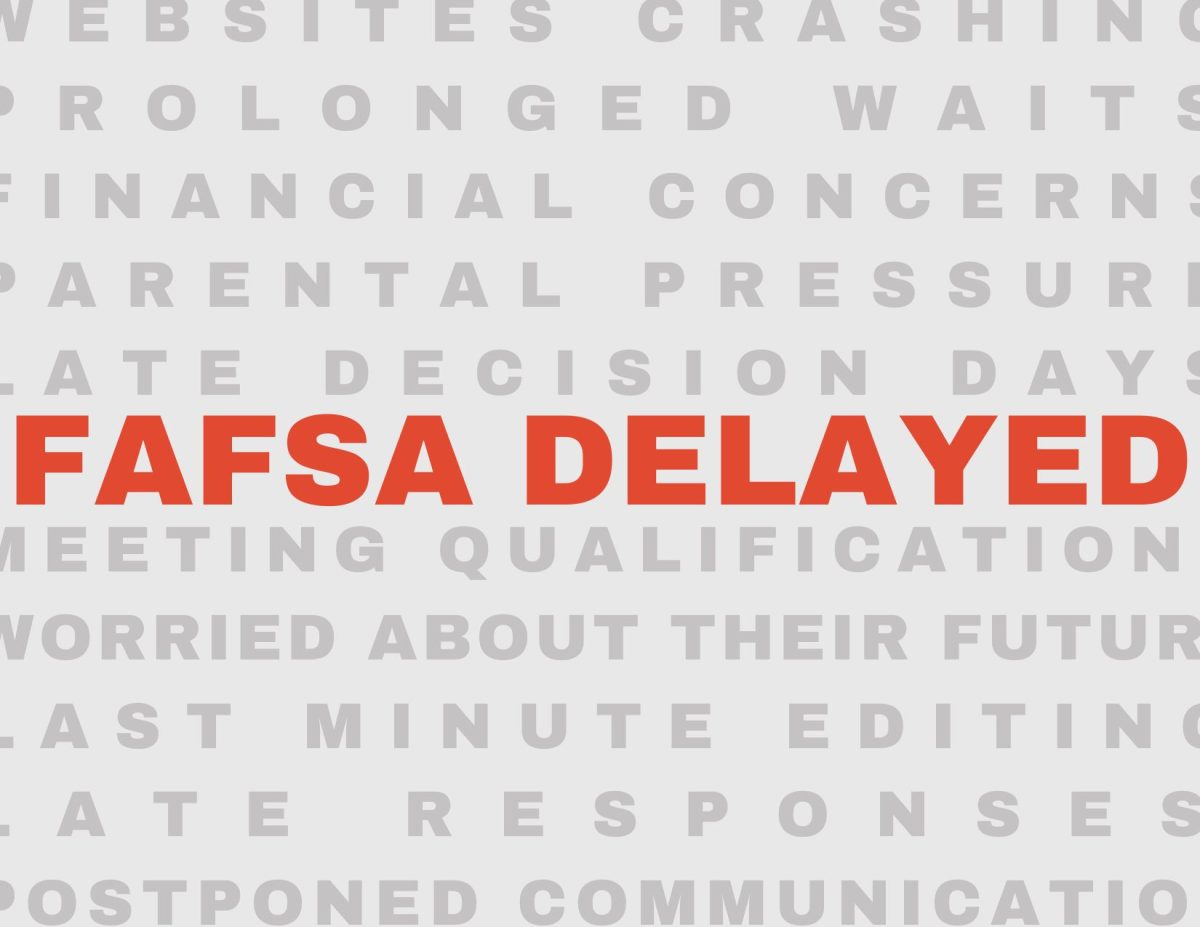Websites crashing. Last minute editing. Waiting months for a decision. The college application process is already stressful enough for most seniors. For the class of 2024, though, that process was made a whole lot more stressful by a delay in the processing of the FAFSA this year. With the delay, many seniors were thrown into uncertainty regarding their futures.
The Free Application for Federal Student Aid (FAFSA) form is an application that students fill out to be considered for federal student aid when applying to colleges. Managed by the office of Federal Student Aid, a part U.S. Department of Education, the form allows students to receive grants, apply for loans and work study funds. Colleges often use this application to determine what financial aid they give students as well.
Because of concerns that the previous form was taking too much time, the form was adjusted as a part of the 2023 FAFSA Simplification Act. According to Studentaid.gov, the new form changed the formula for calculating if and how much aid a family will receive, expanded the access of who can apply for aid and removed qualifying questions such as race or previous drug convictions.
“I definitely liked the fact that it was [easier] because I also filled out the College Scholarship Service Profile (CSS Profile) [run by the CollegeBoard,] [and] that one was really, really tedious to fill out,” senior Connie Chen said. Although the average family income of Naperville residents may be higher than other places, college is still an expensive investment.
“[The delays are] still impacting many of our students,” Corder said. “Not [just] our students who might be low income students, but even students who are in the middle class who might not be qualifying for grant money because they still don’t have their financial aid award packages.”
According to Corder, many students are still filling out the form. Many of those who already have filled it out are still awaiting decisions.
“[Students] don’t know if they’re going to qualify for money because they changed the formula for the FAFSA,” Corder said. “Families that [previously] didn’t qualify for money will qualify for money now.”
Many seniors are left in the dark about their futures because of this new change.
“The financial picture is very, very fuzzy for those students and you want to make sure that you’re making a good financial decision for your future education,” Corder said. “And they’re unable to do that with the knowledge of what they might or might not have in terms of financial aid.”
The delays have significantly pushed back Corder’s schedule.
“Normally, during this time of year, I would be meeting with students and reviewing financial aid award letters, but I haven’t done that one single time this year, which is just crazy,” Corder said.
According to Corder, many colleges have just received the information for financial aid packages. However, much of the FAFSA information collected was incorrect, and the form frequently crashed or glitched for users. Because of this, many colleges have changed their enrollment deadlines.
“I was checking in like every week to see if [FAFSA information] was available, but it wasn’t,” senior Vittoria Gallina said. “Even now, it says [it’s] processed, but none of my colleges have actually gotten it, so I’m still waiting on the financial data and it’s preventing me from making a good choice.”
May 1. was always the traditional deadline for college commitments. However, the FAFSA delays leave students unable to make a decision in time for this deadline. This year, many colleges have decided to push back the commitment day to May 15. Or June 1.
Chen applied to a number of schools including UW-Madison, UC Berkeley, and CU Boulder. UW-Madison and UC Berkeley pushed back their commitment dates to May 15. CU Boulder pushed back the deadline to June 1. Chen has not committed yet because of the delayed financial aid packages.
“I don’t mind so much that we’re kind of like the guinea pigs for this new form, but it is just annoying that everything is messed up,” Chen said.





